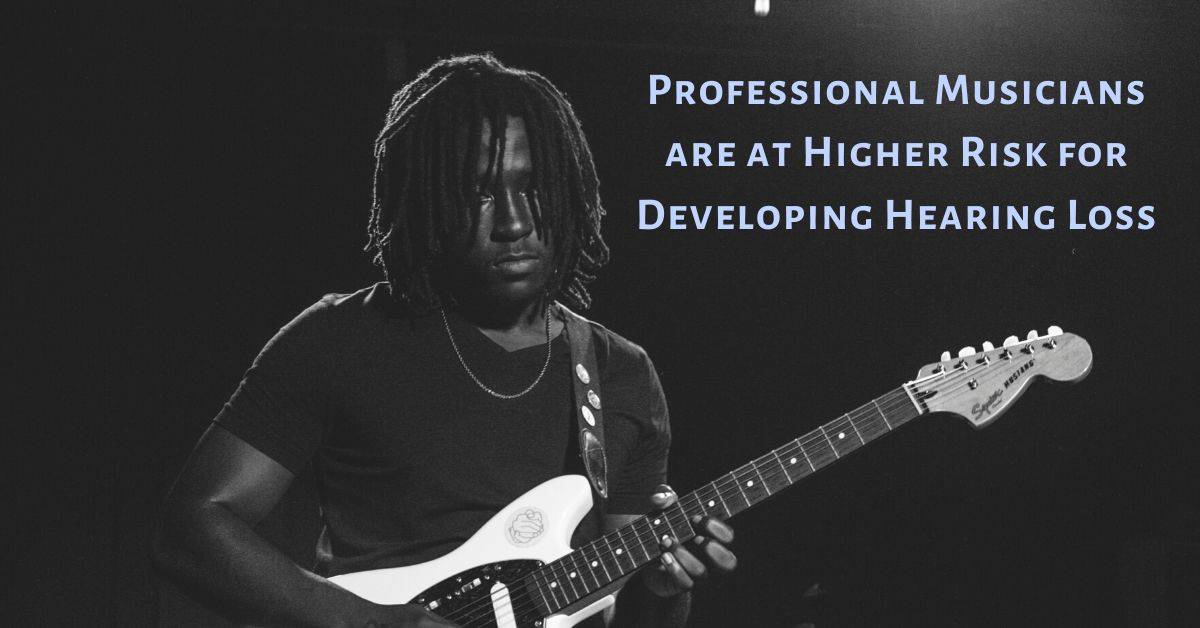
When you think of dangerous jobs, you probably picture firefighters running into a burning building, or construction workers perched high up on a rooftop. Musicians also have dangerous jobs, and what’s at risk is their hearing. Professional musicians, including singer songwriters, classical musicians in a symphony, or rock band members, are at a high risk for developing hearing loss.
What Makes Music So Dangerous?
Professional musicians risk hearing loss during their everyday work. Whether they’re practicing at home, recording their next hit in the studio, or performing in front of their fans, sound levels can easily reach dangerously loud volumes. Being exposed to these extremely loud sounds for several hours every day takes a toll on the ears, and musicians have a much higher risk for hearing loss than the average American.
When musicians are surrounded by noise day in and day out, it can damage their hearing. Loud noise entering the ear will damage or even destroy the delicate cells in the inner ear that are responsible for translating sound waves into electrical signals and sending these signals to the brain. When inner ear cells are damaged, the brain doesn’t get a clear picture of the sounds around you, and you experience hearing loss.
Hearing Loss Is Preventable
The noise induced hearing loss musicians face is completely preventable! Unlike hearing loss due to an illness or injury, or hearing loss caused by age, hearing loss from noise can be stopped. With the help of hearing protection such as ear plugs, sound panels to deflect noise, and in-ear monitors to control sound volume, musicians can prevent hearing loss.
Getting a Baseline Hearing Test
Many adults haven’t had a hearing test since middle school, and it’s a common myth that only seniors have hearing loss. The truth is that 48 million Americans of all ages have a hearing loss, so whether you’re a musician or not, it’s a good idea to get a baseline hearing test, and see your current range of hearing. A baseline test will show you exactly what sounds you can hear, and future hearing tests will refer to this baseline test to see if your hearing has changed. Musicians often lose high frequency sounds first, so testing their hearing of high sounds will help them detect a hearing loss as soon as it occurs.
Musician’s Earplugs
Many musicians don’t wear earplugs and are damaging their hearing! This is because wearing traditional earplugs can muffle sounds, and may even distort sounds, making it hard for musicians to create beautiful music. Musician’s often choose to practice and perform without hearing protection so they can deliver beautiful music to their fans.
Musician’s earplugs can solve this problem. These digital devices analyze the volume of the sounds in the environment, and only reduce sounds if they’re dangerously loud. Musicians can easily hear quiet songs without having to take off their earplugs. Not only that, these earplugs will reduce sounds evenly across both high and low frequencies to minimize distortions, and maintain a balanced, natural sound.
Musician’s Earplugs for Music Lovers
You don’t have to be a musician to enjoy musician’s earplugs. If you’re an avid concert goer, enjoy weekends at the bar, or often find yourself in very loud environments, musician’s earplugs will protect your hearing without distorting sound, and you’ll be able to hear the music you love without risking your hearing health.
Hearing Aids for Music Appreciation
Hearing aids usually address the problem of understanding speech, and amplify high frequency sounds to make it easier to follow conversations and hear clearly. When it comes to music listening, the amplification of high frequency sounds can distort the music and make it harder to enjoy. Modern hearing technology includes programs designed specifically for music appreciation, and these programs will help you hear the music in all its depth. You’ll be able to hear each instrument and voice and enjoy the music without distortion.
When you’re listening to music at home, hearing instruments with Bluetooth technology can stream audio right to your ears, and you’ll have no problem hearing every note, along with all the layers in the sound. Whether you’re a musician or a music lover, hearing aids will help you enjoy music again, and get back to attending concerts with your family and friends.
